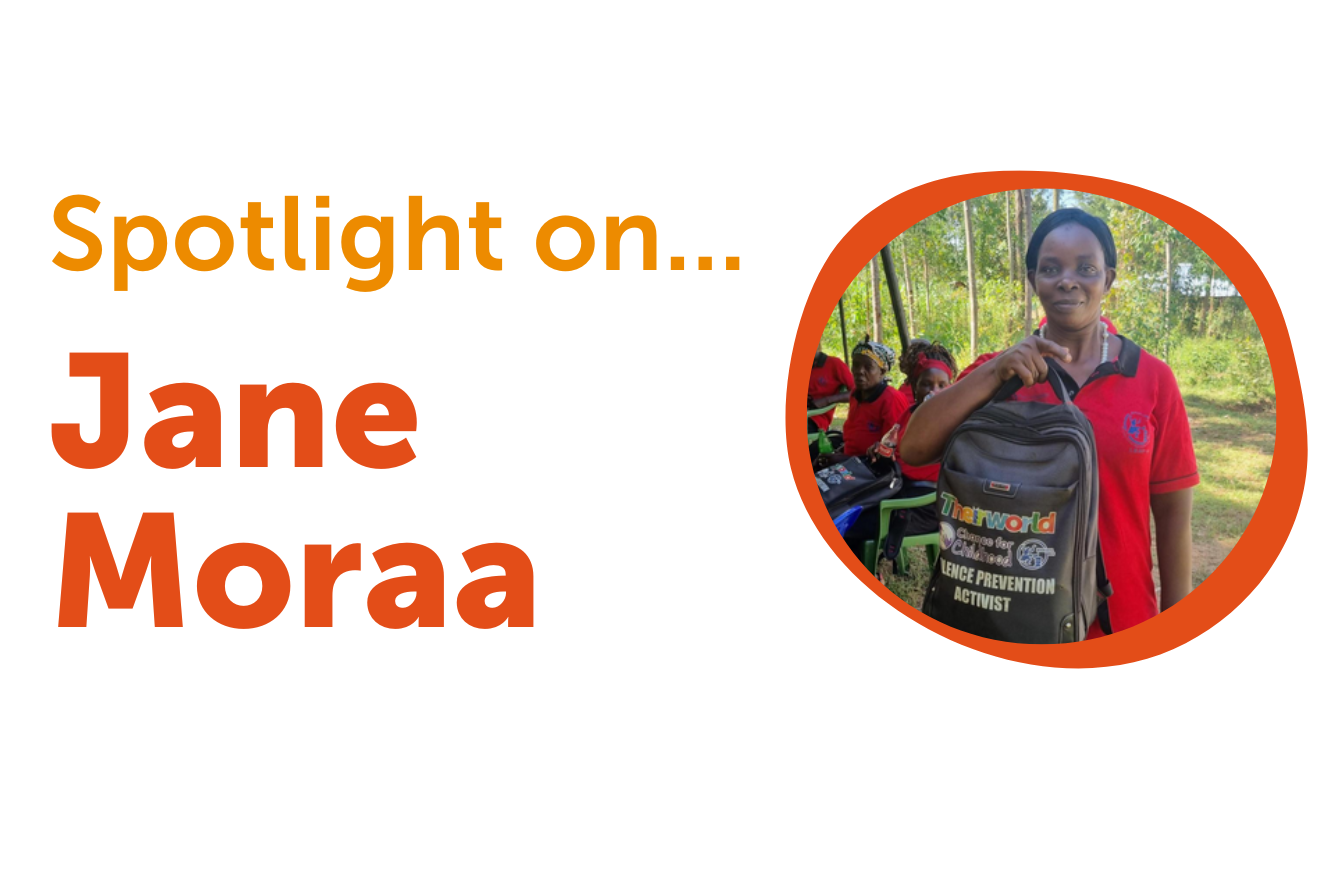“We help children who have run away from home and get them back into school”

We visited a Violence Prevention Activist in Kenya, whose role with a Theirworld-supported project is to improve the lives of children who left their families to live on the streets.
Thousands of children in Kenya live and work on the streets – often because they are having problems at home.
In Vihiga County, trained Violence Prevention Activists (VPAs) visit children in their homes to offer support and help them stay in school. The VPAs work with parents to build honest and open relationships, improving the lives of children by addressing the underlying causes that lead to them running away to a life on the streets.
These home-based interventions are part of the LEAP (Learning, Educating And Protecting) Together project, which is run by Chance for Childhood and supported by Theirworld thanks to the players of People’s Postcode Lottery.
LEAP Together’s other main role is identifying street-connected children with visible and hidden disabilities, such as dyslexia or hearing and visual impairment, and working with them in the classroom.
In the latest of our Spotlight On… series, we visited Jane Moraa in Kenya to talk about her role as a Violence Prevention Activist in her community.
Why did you want to become a VPA?
I wanted to help these children. Most of them were at home and not going to school. I saw some of the abusive situations that they are going through.
Like a girl of class seven dropping out of school to be a housemaid. I felt like, no, this child needs education. I wanted to fight for her rights so that one day she may sit down and say, this person helped me in life and now I’m where I am because of somebody.
How do see the role of VPAs in your community?
We help the children who don’t go to school. Those who have run away from home. So we go and look for them and take them back to their families and their schools, where the teachers already know them.
Then there are those who have issues at home, like the parent is complaining about the behaviour of the child. Maybe there’s a reason why the child is being like this.
If the parent is the problem, we take time to talk to the parent so they can have a good relationship with their child again.
We are talking with the children who are going through abuse. Maybe there’s a child who has been through abuse somewhere and has been identified. People in the community report to us what is happening, so we look into that issue. We look for a way to correct it.
Are there other reasons why the children are not at school?
Some are on the streets, sometimes they are made to work and so are not able to go to school. The financial status of the home can have an effect. If a child has an empty stomach, they may run away so that they can get food.
If the child is given homework and doesn’t do it, they know they may be punished. So they run away from school.
Can you tell us about someone you've been able to help?
One girl was given homework to do at school but she failed to do it. So she decided to go home and not come back to school. I followed up with the girl and persuaded her to return to school. Now she is set for the final exam.
Another boy was found stealing exams. He stayed away from school for three months because he was scared of the action the teacher would take. But eventually he went back to school and was able to do his final exams last year.
What are some of your challenges?
There are some cases that have to go up to the children’s services department. Sometimes there is the challenge of how to get there. Maybe you need the fare or there is no transport. So you’re not able to get to the department every time.
Then nobody looks at that case or gets into that problem. So you may find that a child goes back home and the problem is not solved.
What are your hopes for the children you work with?
My hope is for the young ones to achieve their dreams through education, so that one day they will be able to support themselves. They may even appreciate the good things I have done in their lives. I also hope that other children can get help from these children that I have been able to help.
What keeps you motivated to continue helping these children?
I want to help these children to achieve their dreams when they grow up. One day they’ll be able to reach wherever they want to be.